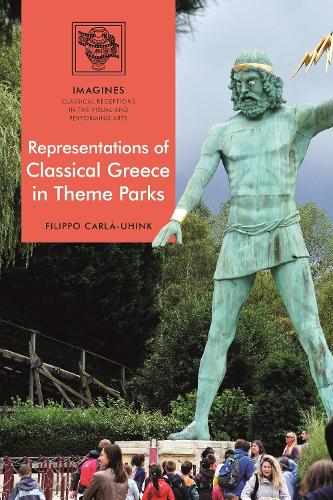
Representations of Classical Greece in Theme Parks
(Hardback)
Available Formats
Publishing Details
Representations of Classical Greece in Theme Parks
By (Author) Dr Filippo Carl-Uhink
Bloomsbury Publishing PLC
Bloomsbury Academic
16th April 2020
United Kingdom
Classifications
Tertiary Education
Non Fiction
Travel guides: theme parks and funfairs
Social and cultural history
Ancient history
791.068
Physical Properties
Hardback
280
Width 156mm, Height 234mm
502g
Description
Theme park studies is a growing field in social and cultural studies. Nonetheless, until now little attention has been dedicated to the choice of the themes represented in the parks and the strategies of their representation. This is particularly interesting when the theme is a historical one, for example ancient Greece. Which elements of classical Greece find their way into a theme park and how are they chosen and represented What is the entertainment element in ancient Greek history, culture and myth, which allows its presence in commercial structures aiming to peoples fun How does the representation of Greece change against different cultural backgrounds, e.g. in different European countries, in the USA, in China This book frames a discussion of these representations within the current debates about immersive spaces, uses of history and postmodern aesthetics, and analyses how ancient Greece has been represented and made enjoyable in seven different theme parks across the world, providing an original and ground-breaking contribution to theme park studies and classical reception.
Reviews
An enjoyable study of both the cultural phenomenon of the theme park and the ways in which the idea of ancient Greece finds its way into contemporary visual culture. * Greece & Rome *
This is the first book-length study of Greek mythology as theme park entertainment in the twentieth and twenty-first centuries. It shows not only that certain themes and visual cues have global reach, but also that individual parks reflect local conditions cultural, economic, and political. -- Dunstan Lowe, Senior Lecturer in Latin Literature, University of Kent, UK
Author Bio
Filippo Carl-Uhink is Professor of Ancient History at the University of Potsdam, Germany.
